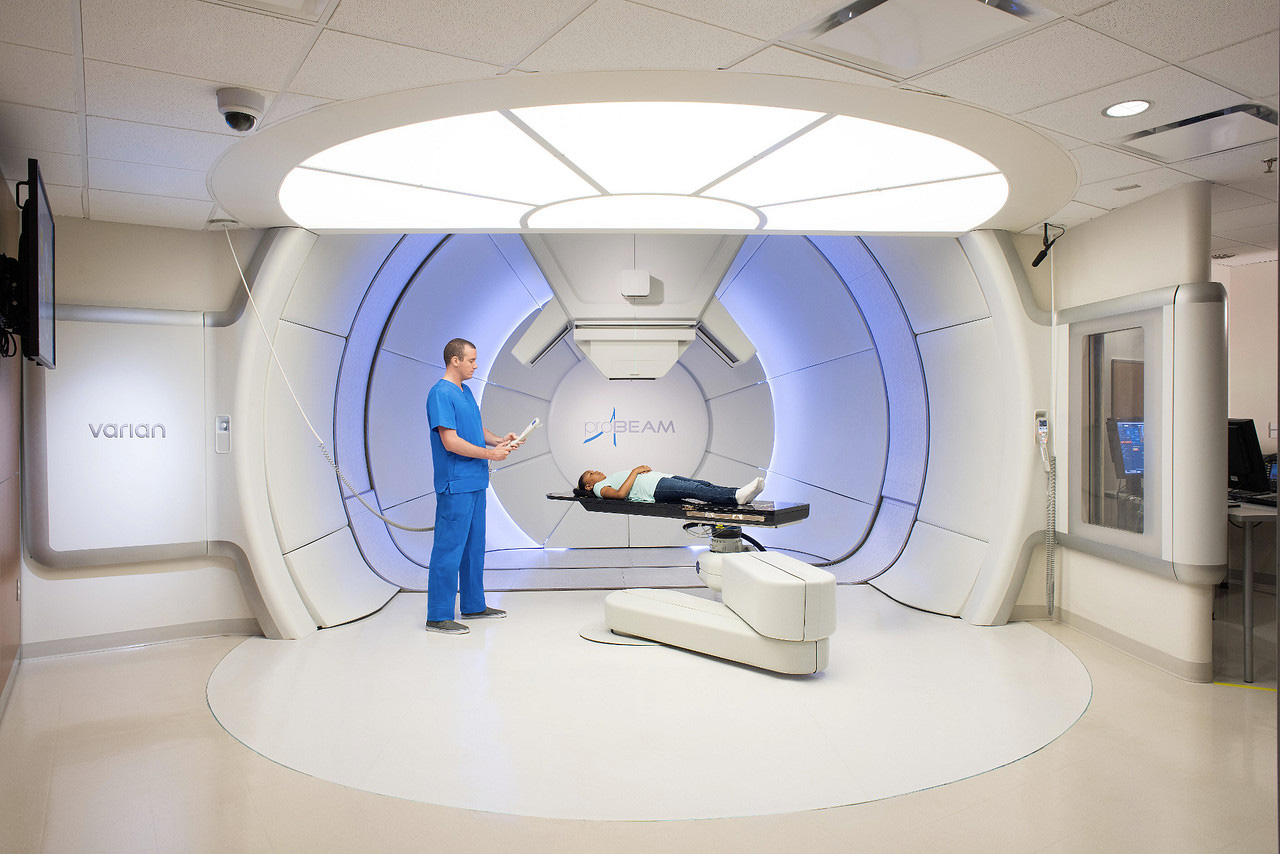Proton Therapy In The Management Of Pancreatic Cancer

|
Getting your Trinity Audio player ready...
|
Pancreatic cancer is a challenging and aggressive disease known for its often late-stage diagnosis and limited treatment options.
However, there is hope on the horizon with the emergence of proton therapy as an innovative and promising tool in the management of this devastating cancer.
This article delves into the role of proton therapy for pancreatic cancer treatment, shedding light on its benefits and potential for improved patient outcomes.
Precise Targeting with Proton Therapy
Proton therapy offers a distinct advantage when it comes to targeting pancreatic tumours. Unlike conventional radiation therapy, which employs X-rays or photons, proton therapy utilises protons. Charged particles like protons precisely release their energy at a specific depth, enabling accurate tumour targeting while minimising radiation exposure to adjacent healthy tissues. This precision holds significant value in the context of pancreatic cancer, where tumours frequently occur in close proximity to critical organs such as the liver, stomach, and intestines.
Reduced Side Effects
One of the significant benefits of proton therapy in pancreatic cancer management is the reduction in treatment-related side effects. The precision of proton therapy minimises damage to healthy tissues, lowering the risk of adverse reactions commonly associated with traditional radiation. Patients undergoing proton therapy often experience fewer gastrointestinal and hematologic side effects, leading to an improved quality of life during treatment.
Improving Treatment Outcomes
Proton therapy has demonstrated its potential to enhance treatment outcomes for pancreatic cancer patients. By sparing healthy tissues and minimising side effects, patients can better tolerate the treatment and complete the recommended course. This can be particularly critical for individuals with advanced stages of the disease, where treatment tolerance is a concern. Moreover, proton therapy may also enable higher radiation doses to be delivered to the tumour, potentially improving local control and survival rates.
Pediatric Patients and Rare Variants
While pancreatic cancer is predominantly an adult disease, rare variants can affect pediatric patients. Proton therapy’s ability to spare healthy tissues is especially relevant when treating pediatric pancreatic tumours, as children’s growing bodies are more susceptible to radiation-related side effects. This targeted approach offers a safer and more practical option for young patients battling this challenging disease.
Multidisciplinary Approach
The management of pancreatic cancer often requires a multidisciplinary approach. Proton therapy can be seamlessly integrated into a treatment plan that includes surgery, chemotherapy, and other modalities. By collaborating with surgeons, oncologists, and other specialists, healthcare teams can create a comprehensive and tailored treatment strategy that addresses the unique needs of each patient.
Enhanced Quality of Life
Proton therapy not only offers potential clinical benefits but can also lead to an enhanced quality of life for pancreatic cancer patients. By reducing side effects and complications, patients may experience less pain, better appetite, and improved overall well-being during and after treatment. This is crucial for maintaining their physical and emotional strength in the face of a formidable disease, and it underscores the holistic approach that proton therapy brings to pancreatic cancer management.
The Future of Pancreatic Cancer Treatment
Proton therapy represents a promising future in the management of pancreatic cancer. While research in this field continues to evolve, the evidence thus far suggests that proton therapy for pancreatic cancer treatment can significantly benefit patients by providing precise tumour targeting, reducing side effects, and improving treatment outcomes. As healthcare institutions continue to invest in proton therapy facilities and research, access to this innovative treatment option is likely to increase, offering hope to those battling this challenging disease.
Conclusion
Proton therapy is changing the landscape of pancreatic cancer treatment by providing a precise and targeted approach that minimises harm to healthy tissues and enhances treatment outcomes. With its potential to reduce side effects and improve the quality of life for patients, proton therapy is a valuable addition to the arsenal of treatment options available for pancreatic cancer. As research and clinical experience continue to expand, the role of proton therapy in managing this disease is poised to grow, offering new hope to patients and their families.





